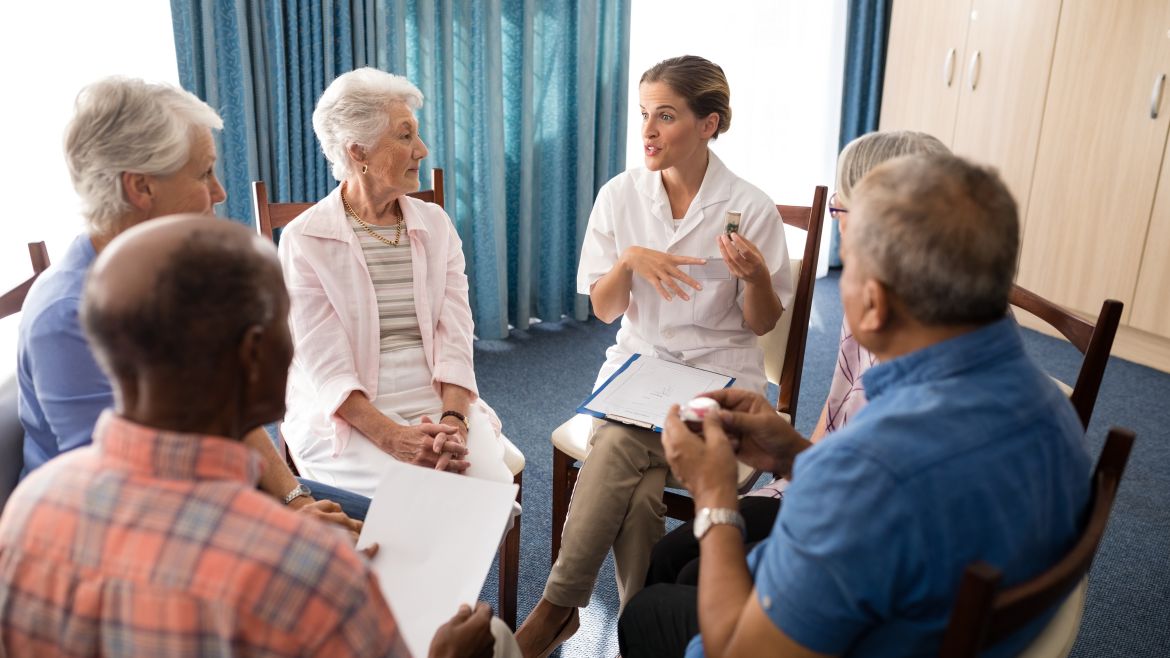Counseling in hospice care is a vital aspect of providing comprehensive support to patients and their families facing the challenges of terminal illness and end-of-life care.
Unfortunately, there is no right way to prepare for life’s pain. Everyone reacts uniquely to the loss of a loved one, and your grief is unique too. Coping with the likely loss of a loved one and their final death can be life-changing. You may feel strong and prepared, but strong waves of grief can be overpowering. Pain, panic, loneliness, fear, confusion, sorrow, anxiety, and even anger are common and expected feelings and these feelings can continue for months. We at V Care Hospice offer support and help on this uncharted journey.
Our trained social worker and non-denominational chaplain are here and available to help.

Emotional Support: Counseling offers a safe and supportive space for patients and families to express their feelings, fears, and concerns about the end of life. It helps them cope with emotional distress, anxiety, depression, grief, and existential concerns related to their illness and mortality.
Communication: Counseling facilitates open and honest communication between patients, families, and healthcare providers, fostering understanding, empathy, and shared decision-making. It helps clarify goals of care, explore treatment options, and address difficult topics such as advance care planning and end-of-life preferences.
Coping Strategies: Counselors provide patients and families with coping strategies and resilience-building techniques to help them navigate the challenges of terminal illness and loss. They teach relaxation techniques, stress management skills, and mindfulness exercises to promote emotional well-being and enhance coping abilities.
Family Dynamics: Counseling addresses family dynamics and interpersonal relationships, helping families navigate conflicts, roles, and responsibilities during the caregiving process. It fosters mutual understanding, support, and collaboration among family members, promoting cohesion and unity during a difficult time.
Bereavement Support: Counseling extends support to families following the death of a loved one, helping them cope with grief, loss, and adjustment to life after bereavement. Counselors provide individual and group counseling, support groups, and memorial services to facilitate the grieving process and promote healing.
Spiritual and Existential Support: Counseling addresses spiritual and existential concerns, providing comfort, meaning, and purpose to patients and families as they approach the end of life. Counselors offer spiritual guidance, existential exploration, and support in finding hope, peace, and transcendence amid suffering and uncertainty.
Education and Information: Counseling provides patients and families with education and information about the dying process, palliative care, hospice services, and practical aspects of end-of-life care. It empowers them to make informed decisions, advocate for their preferences, and actively participate in their care.
Overall, counseling in hospice care offers holistic support to patients and families, addressing their emotional, psychosocial, spiritual, and informational needs with compassion, empathy, and expertise. It helps them find meaning, acceptance, and comfort during the end-of-life journey, promoting dignity, quality of life, and peace of mind.


